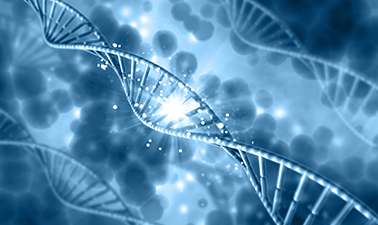Prof. Dr. Ahmed Hashash
-Associate Professor of Biomedicine.
-Texas A&M University
-College Station, TX, USA

The course is divided into four comprehensive parts, blending theoretical knowledge with practical case studies and research insights. Each part includes video lecture, interactive discussions, and quizzes, allowing students to master key concepts at their own pace.
Introduction to Stem Cell Biology
This foundational module introduces the key concepts of stem cell science, covering:
• Definition and characteristics of stem cells: self-renewal and pluripotency.
• Differences between embryonic stem cells, adult stem cells, and iPSCs.
• How stem cells contribute to tissue development and regeneration.
Students will gain a solid understanding of the basic biology of stem cells and why they are pivotal to modern scientific research.
Stem Cells in Development and Differentiation
This module explores how stem cells drive early embryonic development and tissue differentiation. Key topics include:
• The role of stem cells in forming tissues and organs.
• Molecular signals that regulate differentiation into specialized cell types (e.g., neurons, muscle cells, etc.).
• Techniques for guiding and controlling stem cell differentiation in the lab.
By the end of this module, students will grasp how scientists manipulate stem cells to study development and disease.
Therapeutic Applications of Stem Cells
Stem cells hold incredible promise for treating degenerative diseases and injuries. This module covers:
• Regenerative medicine and tissue engineering using stem cells.
• Case studies of clinical trials for Parkinson’s disease, spinal cord injury, heart disease, and diabetes.
• Exploring the potential of stem cells in gene therapy and organ transplantation.
Students will gain real-world insights into how stem cells are being translated into therapies that could revolutionize medicine.
Stem Cells in Disease Modeling and Drug Discovery
Stem cells are invaluable tools for studying diseases and testing new drugs. This module will teach students:
• How iPSCs are used to model human diseases in a dish.
• Techniques for creating patient-specific stem cells for personalized medicine.
• The role of stem cells in discovering and testing potential new treatments for diseases like ALS, Alzheimer’s, and cancer.
Ethical, Legal, and Regulatory Considerations
Stem cell research raises profound ethical questions. In this module, students will explore:
• The ethical issues related to the use of embryonic stem cells and the creation of iPSCs.
• Legal and regulatory frameworks that govern stem cell research and therapy worldwide.
• How clinical trials for stem cell therapies are regulated to ensure patient safety.
Through critical discussions and case studies, students will develop an informed understanding of the ethics and regulations shaping this field.
Future Directions in Stem Cell Research
The final module will examine the most exciting future trends in stem cell research, including:
• Advances in gene editing technologies like CRISPR and their potential to modify stem cells for therapeutic purposes.
• Emerging applications of stem cells in anti-aging research, immunotherapy, and organ regeneration.
• The challenges and opportunities in commercializing stem cell technologies for wider medical use.
By the end of this course, students will be well-prepared to critically engage with the latest research and innovations in stem cell biology.
Interactive Features: Knowture’s platform ensures an engaging learning experience, offering:
• Live Q&A Sessions: Participate in real-time discussions with leading stem cell researchers.
• Discussion Forums: Collaborate and share ideas with peers globally.
• Hands-on Assignments: Apply knowledge through projects designed to simulate real-world research problems.
Certification:
Upon completing the course, students will receive a Certificate of Completion from Knowture, demonstrating their expertise in stem cell science. This certificate will bolster career opportunities in academia, biotechnology, and clinical research.
Why Take This Course on Knowture?
• Expert Instruction: Learn from world-class scientists and researchers in stem cell biology.
• Global Network: Connect with postgraduate students and professionals from universities around the world.
• Flexible Learning: Access course materials on-demand and study at your own pace, with support from Knowture’s dedicated instructors and community.
Enroll Now:
Join this transformative course and become a part of the next generation of scientists unlocking the potential of stem cells. With Knowture, your path to mastering stem cell science begins today!
tags.
Prof. Dr. Ahmed Hashash
-Associate Professor of Biomedicine.
-Texas A&M University
-College Station, TX, USA
Knowture platform works best with current versions of Chrome, Edge, Firefox, or Safari.